I had a mission when I revisited Japan last November: to visit the fluffiest place on earth… Miyagi Zao Fox Village in Shiroishi! After all, ever since I saw the online articles that featured this spectacular place, I just knew that I had to go — so I did, and you bet I almost ‘died’ of happiness because they were ALL. SO. ADORABLE!!!
…And yes, it is a village-esque free-roaming forest preserve full of foxes; and by ‘foxes’, I mean real wild foxes!
As some of you may have already heard, apart from this fox place, there are other famous ‘paradise destinations’ in Japan for animal-lovers: a rabbit island in Okunoshima, a cat island in Tashirojima, and a deer park in Nara and Miyajima.
.
Since I have already visited the deer parks during my 1st visit to Japan in April, I decided to go to this place next because of my intense fascination for them (surely I can easily see rabbits and cats anytime I want — but for elusive wild foxes? Nope!)
I was ready to do a solo adventure to the fox village in Miyagi prefecture at that time; however, happiness is best experienced when shared, right? That’s why I invited my friend, Kaila, who was living in Tokyo at that time to come with me, and I’m so glad that I did because we had a swell time!
Come and read on below to see how our experience went! And at the bottom of this article, you’ll see a detailed travel guide where I discuss how to reach this fox village so that you (and your friends) could drown in their cuteness as well. ♥︎
About the Fox Village
Miyagi Zao Fox Village or Kitsune Mura is an 18,000 square feet enclosed area in a large-scale forest found on the outskirts of Shiroishi city. There are about 200 free-roaming foxes here who were saved from slaughter for the fur trade and to date, there are 6 types of them: the rare silver fox, arctic fox, Japanese red fox, cross fox, platinum fox, and platinum gold fox.
Obviously, this place is NOT a village. It’s rather an animal-sanctuary-slash-zoo where foxes are brought up to be taken care of the rest of their lives, and that in order to continue breeding, feeding, and protecting them, the owners open the ‘village’ to the public. That being said, visitors are free to roam inside and see them up close — however, touching the foxes is NOT allowed because they’re not totally tamed.
TRIVIA: Foxes or ‘kitsune‘ are popular subjects in Japanese mythology and folklore as they’re commonly depicted as intelligent beings who possess magical abilities and who can even shape-shift into a human form.
.
Due to these stories, foxes and humans back in ancient Japan actually lived close together which later on increased their supernatural significance. For one thing, kitsune were closely associated to Inari Okami, a Shinto kami or spirit of wealth + prosperity + rice, as its messengers. That’s why up to this day, some people make offerings to them as a deity in shrines because of their potential ‘power’.
.
With all that said and done, you can be assured of the fact that the Japanese love and respect foxes.
» Entrance Office
The front office has Japanese personnel, and as you might expect, they don’t speak English well. However, they have prepared signs and demonstrations (with some parts translated into English) that will give you all the details that you need.
At this point, you have to pay the entrance fee of ¥1,000 yen ($8~ or Php 40~) and you can also buy food for feeding the foxes later on (optional at ¥100 yen or less than a dollar / Php 45~).
Some important things to remember:
- Do NOT bring any other food inside the fox enclosure. If you buy one of the food packs for the foxes at the reception, you must keep it inside your bag. Take it out and use it to feed nearby foxes only when you’re in the feeding area.
- NOTE: The foxes are familiar with the food packs and to prevent them from snatching it away from you and from accidentally eating the plastic of the packaging, please hide it away from them.
.
- NOTE: The foxes are familiar with the food packs and to prevent them from snatching it away from you and from accidentally eating the plastic of the packaging, please hide it away from them.
- Young children are allowed to go in, but it’s advisable to carry your kids when there are nearby roaming foxes.
. - Be careful of your belongings, especially the smaller things because they will easily mistake it for food. Once they catch something from you, you’ll most likely not get it back since they will quickly run away and bury it somewhere.
- FACT: Foxes LOVE digging holes and burying their food because at a young age, they were taught to store food in case of dire times. For sure the foxes here are fed everyday, but they still dig and bury food by instinct.
.
- FACT: Foxes LOVE digging holes and burying their food because at a young age, they were taught to store food in case of dire times. For sure the foxes here are fed everyday, but they still dig and bury food by instinct.
- Do NOT pet nor touch the foxes inside the enclosure. They will bite. And when they’re sleeping, do NOT bother nor harass them either; let them be.
- NOTE: Foxes are mostly nocturnal, spending most of the day resting or sleeping.
.
- NOTE: Foxes are mostly nocturnal, spending most of the day resting or sleeping.
» Outside the Enclosed Area
I didn’t manage to take photos (because I swiftly went inside the ‘village’) but before you enter the gates that lead you to the ‘fox village’ itself, there is an area just outside the reception where you will already see a few foxes — however, they are either in cages or in a collar leash.
This will make you sad or it might even enrage you; but apparently, these foxes were mostly juvenile ones that needed to be treated and separated from the rest in order to hasten their healing process (others were being vaccinated since the sanctuary makes it a point to keep away any diseases). The staff usually keeps them in for a while until they’re okay to go out to the open field with the others.
You will also see that there are some younger foxes in cages and they’re mostly being kept there for proper rearing before they’re free to roam the main enclosure area with the rest of the other mature foxes. This is because newborn foxes are unable to see, hear or walk; so they need proper care during that age. To note, it’s here that visitors are free to carry and pose with these younger foxes for ¥400 yen for a few minutes. You will just be required to wear a jacket that they provide (for protection) before holding the fox.
It seems that they only give out the younger ones this petting opportunity because they’re not as finicky with the human touch given their young age. (After all, it was mentioned in their blog that petting and photo opportunities will be unavailable if there are no newborn fox cubs. Still and the same, I do NOT recommend that you do it.)
Other than foxes, you can also pet other animals here such as rabbits, ponies, and goats. But then again, I didn’t really come there to pet these animals nor the foxes — I just want to be surrounded by TONS of these cute little fellas up close!
And so, off I went to the main fox village’s enclosed area…
» Inside the Enclosed Area
It was the autumn season when I visited, so once I stepped into the 18,000 feet forest, you can just imagine how surreal it was to suddenly see several red foxes in this scarlet landscape!
As I started to walk, I noticed a trait that was common to all of these cute foxes too: if I stand still, their inane curiosity will take over and they will willingly come up to me! HOWEVER, the moment that I moved an inch or started walking, they immediately scamper away.
Just be mindful though when you sit down because they might start biting your clothes or even your butt. This brings us back to the idea that though these foxes are a lot tamer than wild foxes, they’re still technically ‘wild’ and brought up in a way that’s almost akin to life as if they are ‘outside’.
When the paved road ended, I started to climb up the hill to explore the rest of the place. Up there, I saw a lot more foxes who were either sleeping or walking around (probably looking for food).
I then proceeded to take my sweet time in making stops and picturing these fluffy creatures!
Somewhere at the top in the middle of the forest, you would find the feeding station which is a wooden structure raised on stilts. It’s easy to spot given the signs AND the number of foxes who are eagerly waiting for food to be thrown at them from this platform. ‘Throw’, because they do NOT allow you to feed the foxes by hand. (It’s hard anyway to feed them by hand if you’re at this high-rise feeding station — but still, it helps that you’re reminded of this).
Also, when you walk into this feeding station, make sure that you close the door behind you and that you don’t let any of the foxes in. Once inside, do ready your fox treats as you prepare to have your heart melted by several adorable furry eyes below!
NOTE: As with any animal, some of these foxes will fight for the food that you throw so I suggest that you throw the treats at isolated foxes to avoid any scuffle amongst them.
If you go further out, you will see a shrine with kitsune statues and a torii gate that’s common for Shinto shrines.
As I spent more time inside, I finally got the chance to hear how a fox’s “bark” sounds like — and heck… this was the only thing that was NOT cute about them. Their voice certainly sounded like a blood-curdling scream that can only be the stuff of nightmares! (If you want to hear ‘what does the fox say’, just watch the YouTube video I have above.)
Their barking aside, foxes still remain to be delightful and captivating in my books, and I’m so glad that a place like this exists! At the end of this experience, I realized that they just might well be my spirit animal — they sleep a lot, eat a lot, are mischievous, and have a scream that can rage hell on Earth if annoyed. *wink*
NOTE: Once you come back, there is a small souvenir/gift shop behind the reception. Rest assured, if you see products with fur, they’re made from fake fur (like plushies etc.), except for a few key chains that you will find there which are made from real fox fur — HOWEVER, those are all from Norway and Denmark (…a bit ironic, yeah; I hope they stop selling that). Nevertheless, the Fox Village says that they never breed their foxes for fur.
» Aspect of Ethics
I have seen a couple of mixed reactions about this place and I totally understand the concern. First of all, much like a zoo, there’s no denying that this establishment profits from these animals; however, I personally have no qualms about that kind of set-up for as long as they properly take care of the foxes — which they seemingly do here!
Seeing them all up close, the “residents” looked active, happy, healthy, and well taken care of to me. Also, the strict rules that the sanctuary implements about not touching these animals was a plus for me, as well as the fact that the original foxes that were taken in here were saved from slaughter from the fur trade (according to the establishment’s caretakers).
NOTE: Foxes typically shed their fur at the beginning of spring and have shorter fur (or look less fluffier) by summer, making them look ‘patchy’. Come autumn and winter, the foxes will start to grow more fur to protect themselves from the cold.
.
I’ve read reviews online who have commented on their patchy furs, saying that they looked unhealthy because of that — but I think they didn’t know this natural process of fur shedding by foxes that’s why it led them to think as such
Secondly, I wholly agree with the concept of leaving animals to the wild. However, given today’s times, most of them might need some sort of protection. Looking at the facts, a fox in the wild has an average life span of 2-4 years only because of hunting practices and road accidents. (You cannot imagine the number of people who would ‘kill’ for fox fur, nor the number of people who do fox hunting for fun/sport like the UK for example).
In Miyagi Zao Fox village, their foxes can live up to 14 years old! I definitely see that as added proof that they’re fine being here.
Now, some might suggest releasing them into the wild after a certain age too, but I think that’s not a good idea because given their upbringing, they might not survive out there anymore and their chances of survival will become slimmer. Not to mention that they’re more susceptible to diseases in the wild.
If it helps to note, foxes are also one of the few animals who don’t suffer any type of stress when under captivity — a lot of researchers are looking into this trait that they have so that they could possibly find out how they can alleviate stress for other animals in captivity.
Nevertheless, even if they’re raised in-house, they’re still brought up in a way that aims to preserve their natural characteristics. (For example, they let the foxes do their infamous cub separation process which you can learn more about on t#heir website here.)
All in all, if you hate zoo environments or any sort of animal enclosure no matter if the conditions are well and good, I suggest that you don’t visit this place or it will make you uncomfortable. As for me, I just try to keep an open mind and I don’t immediately shun every animal park, especially if the animals are well-cared for. That being said, I remain to recommend this place to you guys!
Though of course, I do admit that there can be certain improvements that can be made here — such as better cages, better processes, more English materials to explain how they function, etc. so much like me, do feel free to talk or send an email to the staff (if you can’t speak Japanese) about your comments since they’re very open to hearing what their visitors think.
• • •
About the Fox Village
» Address Details
I highly suggest that you do this as a day trip while you’re visiting Tokyo since it’s only a few hours away by train!
ADDRESS: Kawarago-11-3 Fukuokayatsumiya, Shiroishi, Miyagi Prefecture 989-0733
TELEPHONE: 0224-24-8812
WEBSITE: www.zao-fox-village.com
EMAIL: [email protected]
HOURS OF OPERATION: 9:00AM to 16:00PM
ADMISSION FEE: ¥1,000 yen ($8~ or Php 40~) for adults. Children under 12 years old are free to enter. Fox food is at ¥100 yen (less than a dollar / Php 45~) per bag, but this is optional.
» How to Get to the Fox Village from Tokyo
First, ride a shinkansen that will take you to Shiroishi-Zao Station via the Tohoku Shinkansen (Yamabiko 129やまびこ Sendai) train line. You can use Google Maps to map out your route depending on where you are located in Tokyo in order to reach Shiroishi-Zao Station.
For example, you can get the Tohoku Shinkansen at Tokyo Station or Ueno Station and it takes less than 2 hours to get to Shiroishi-Zao.
- With JR Pass: you do NOT need to pay. Just present your pass at the station.
- Without JR Pass: ticket costs around ¥9,000 yen one way only ($80~ or Php 4,000~).
*If you don’t have a Japan Rail Pass (JR Pass) and find the train tickets to be too costly, you can take a highway bus from Tokyo to Sendai that costs about ¥3,000 to ¥5,000 yen. However, take note that this takes about 6 hours. Once you reach Sendai, you need to catch a regular train to Shiroishi-Zao Station (costs about ¥750 yen).
Once you’re at Shiroishi-Zao, there are several options you can choose from to reach the fox village:
- By taxi: There are taxis lined up outside the station. In case you don’t see any, feel free to ask the JR office in the station to call a taxi for you. It cost us ¥3,900 one way to (for about 20 minutes). The taxi driver will hand you a paper like the one below which you should present to the reception at fox village once you need to go back to the train station (so that he will come back to pick you up, in which the cost will remain the same; so it’s best that you come with others so you can split the cost).
- By bus: There is a line called Castle-kun that runs on Tuesdays and Fridays and goes to Kawarago Damn from the station around 8AM and 4PM. The fox place is not a regular stop though, so you have to let the driver know. Make sure that you confirm the time that it returns as well. (Cost: ¥200 yen one way).
If you need further help, just use the directions feature in Google Maps — I find this as a very helpful tool if I want to reach a certain place from a particular location. (However, Google Maps doesn’t work offline if you want routes or transportation schedules, so I recommend that you get a pocket WiFi or a SIM Card to stay connected online).
» Helpful Tips to Remember
- There is fox poo EVERYWHERE. So be prepared to get poo stuck under your shoes.
- Foxes are actually pretty smelly and that scent can cling on to your clothes.
- If you want to see the foxes at their ‘fluffiest’ fur, visit during autumn or winter.
- I advise that you grab a bite beforehand because there isn’t a restaurant or eating place in the fox village (it’s pretty much isolated). At Shiroishi-Zao station, you can buy food or snacks at the convenience store there (konbini).
» Helpful Japanese Phrases
Hello: Konnichiwa (Kohn-nee-chee-wah)
Thank you (normal): Arigatō. (Ah-REE-gah-tohh)
Thank you (less formal): Arigatō gozaimas (Ah-REE-gah-tohh goh-zahy-mahs)
Thank you (informal): Dōmo (DOHH-moh)
Yes: Hai (Hai)
No: Iie (E-eh)
Goodbye (long term): Sayōnara (Sah-yohh-nah-rah)
Goodbye (informal): Ja ne (Jahh neh)
Excuse me: Sumimasen (Soo-mee-mah-SEN)
I’m sorry: Gomen nasai (Goh-men-nah-sahy)
Is there someone here who speaks English?: Dareka eigo ga hanasemasu ka? (Dah-reh-kah ey-goh gah hah-nah-seh-mahs kah?)
Help!: Tasukete! (Tahs-keh-teh!)
Cheers!: Kanpai! (Kan-pie!)
• • •
» Top Japan Tours «
Robot Restaurant Show
See this famous show in Tokyo!
Kimono Rental
Try out Japan’s traditional kimono for a day!
• • •
Overall
I was beyond overjoyed when I visited this place that’s filled with cute, curious, fluffy, and photogenic furries! It was truly a memorable experience.
On the other hand, I won’t deny it: I had mixed feelings about visiting this place (I will always have mixed feelings about visiting animals in captivity). But like I’ve already mentioned above, from what I’ve seen and from what I’ve learned, I have no qualms about this place since they’re treating the foxes well. Overall: I leave it up to you to decide if you want to visit this place or not given the information that I give above.
P.S. Given that I don’t speak Japanese, I really tried my best to provide you with all of this information through personal experience, research, and correspondence with the Fox Village’s staff; hence, I dearly wish that this travel guide can be of help should you decide to visit. Let me know!

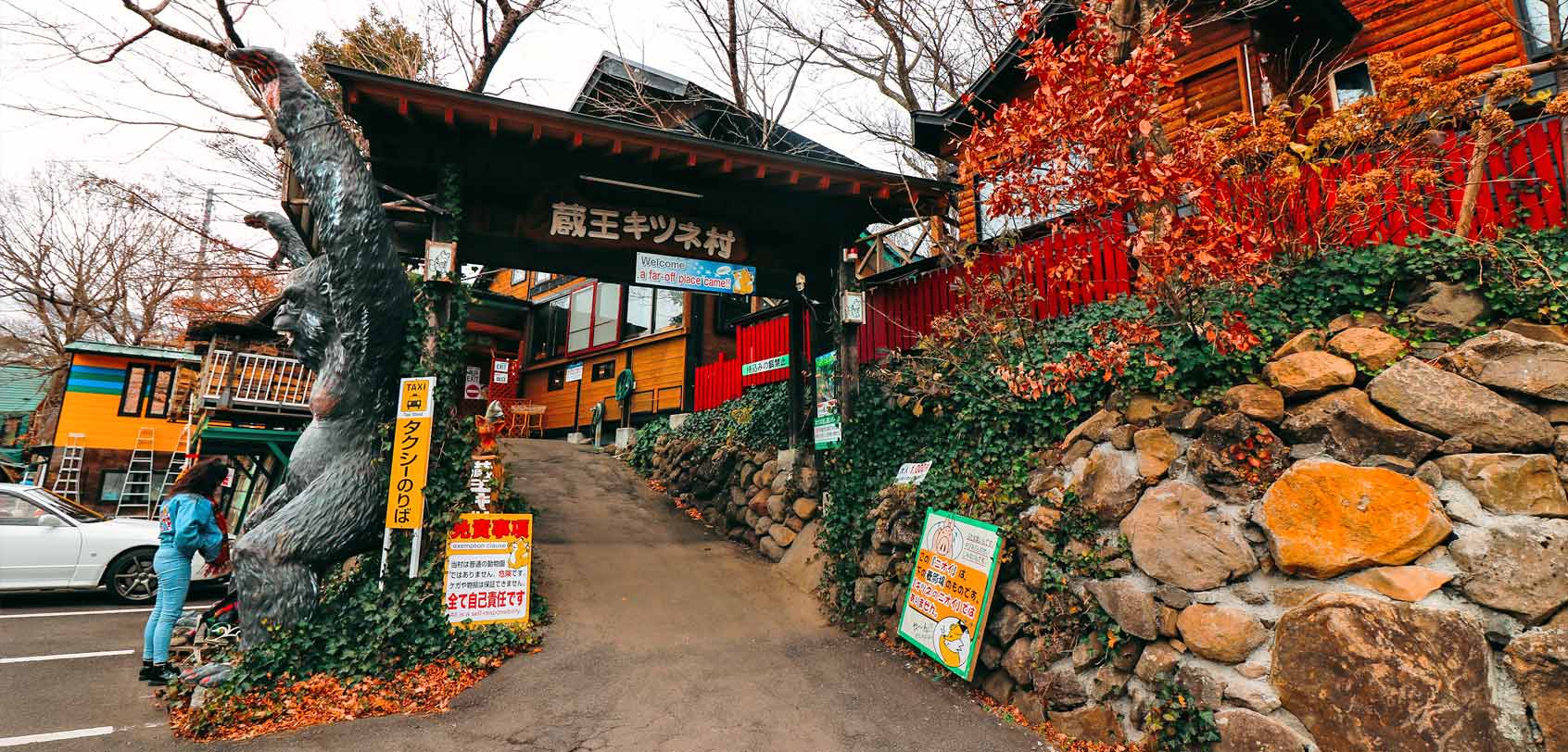

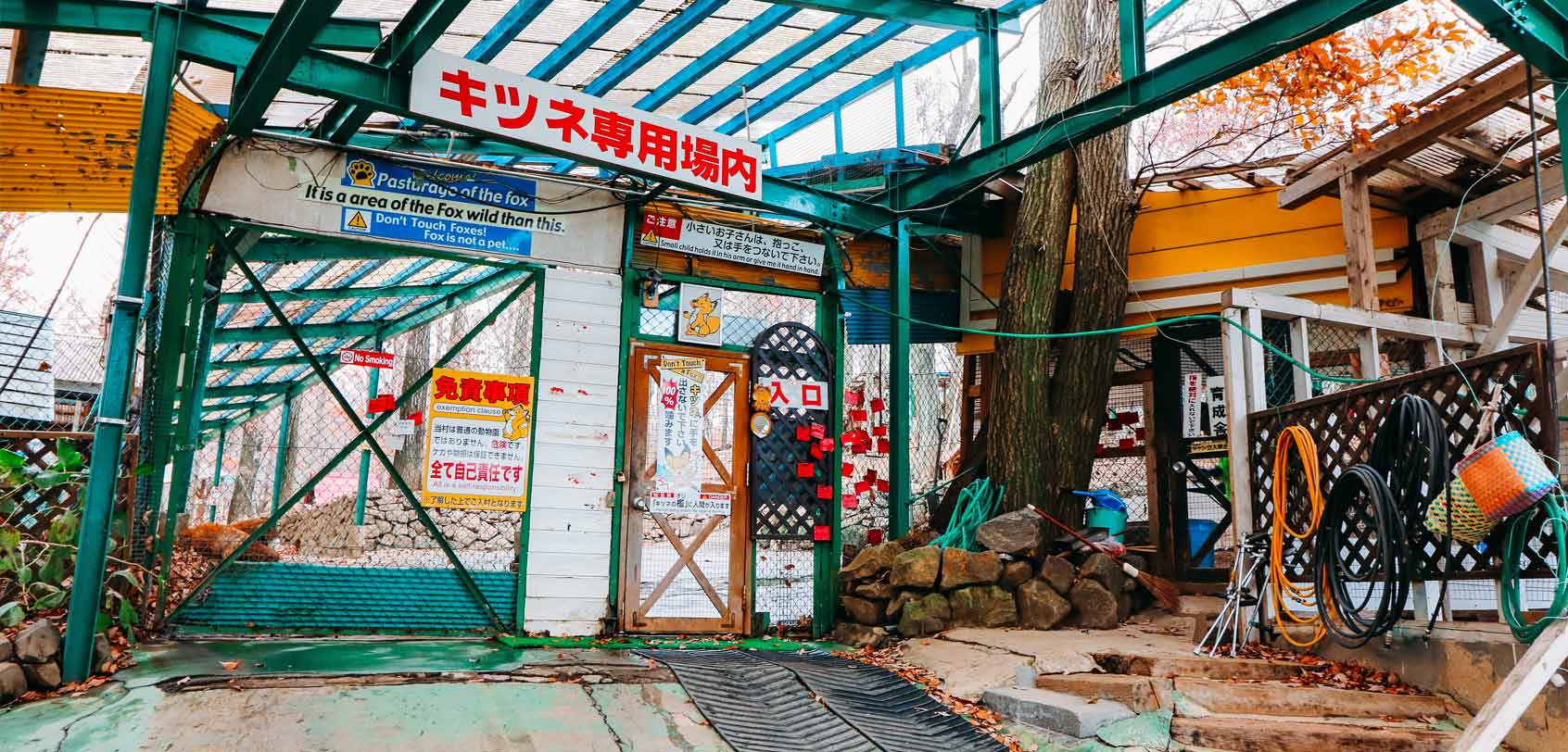
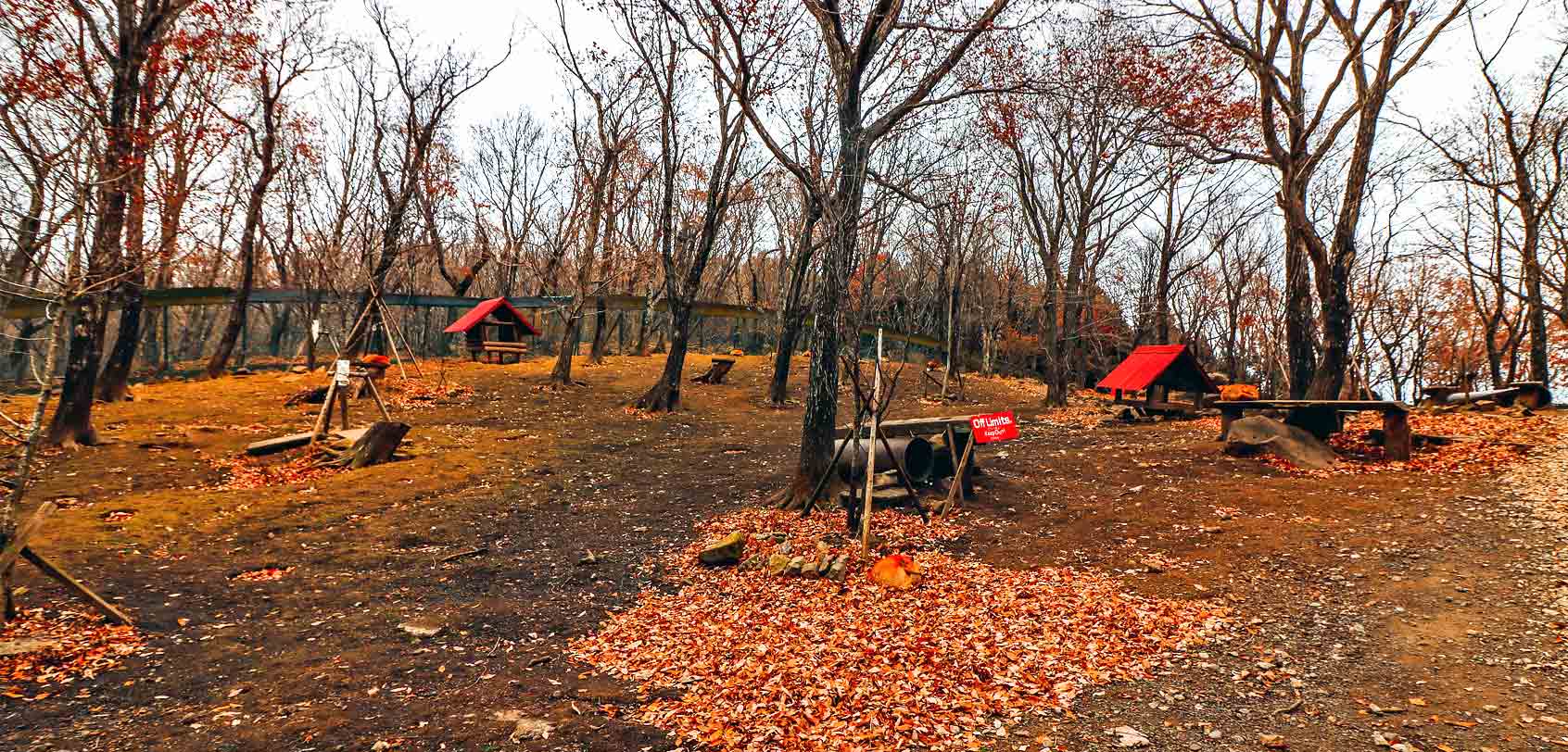
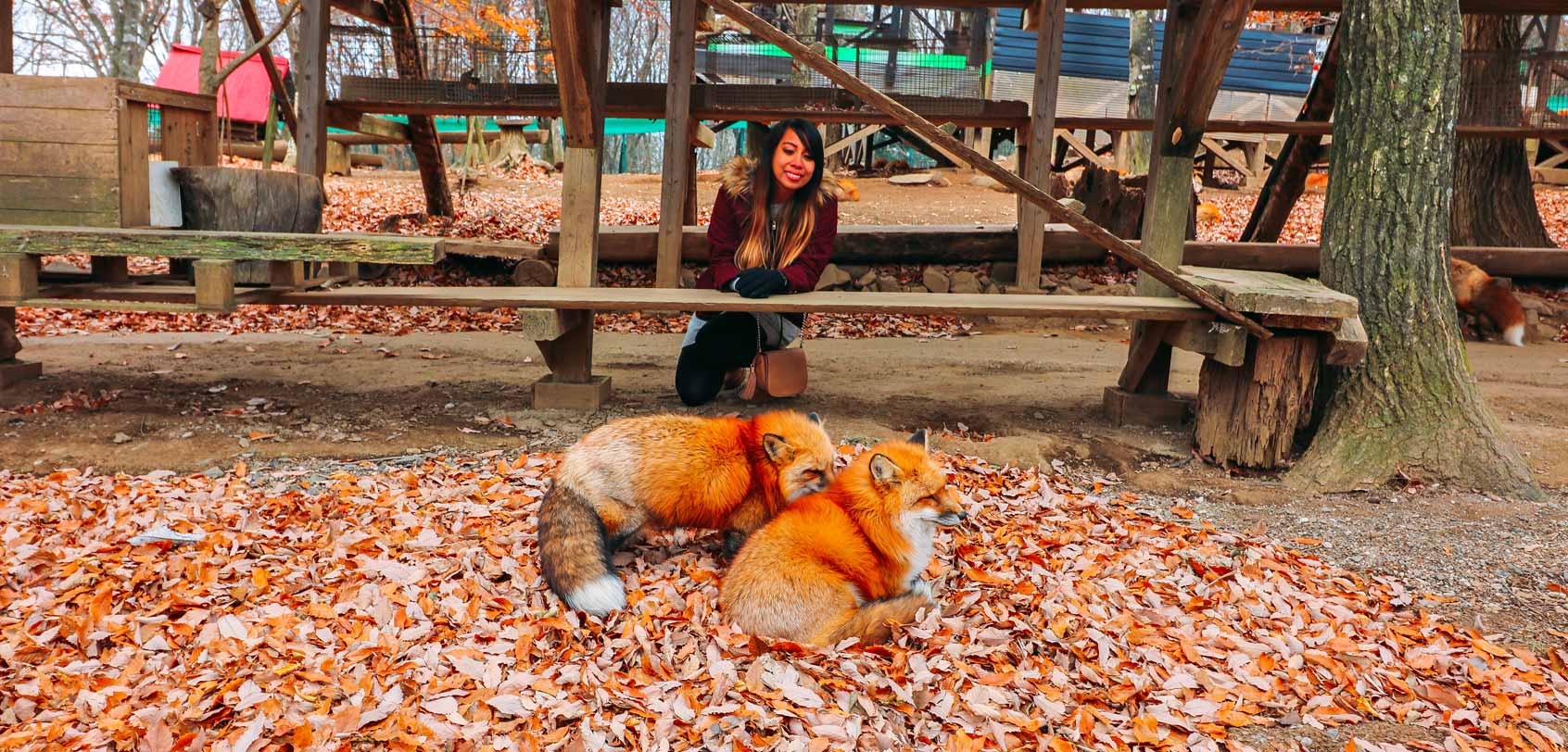

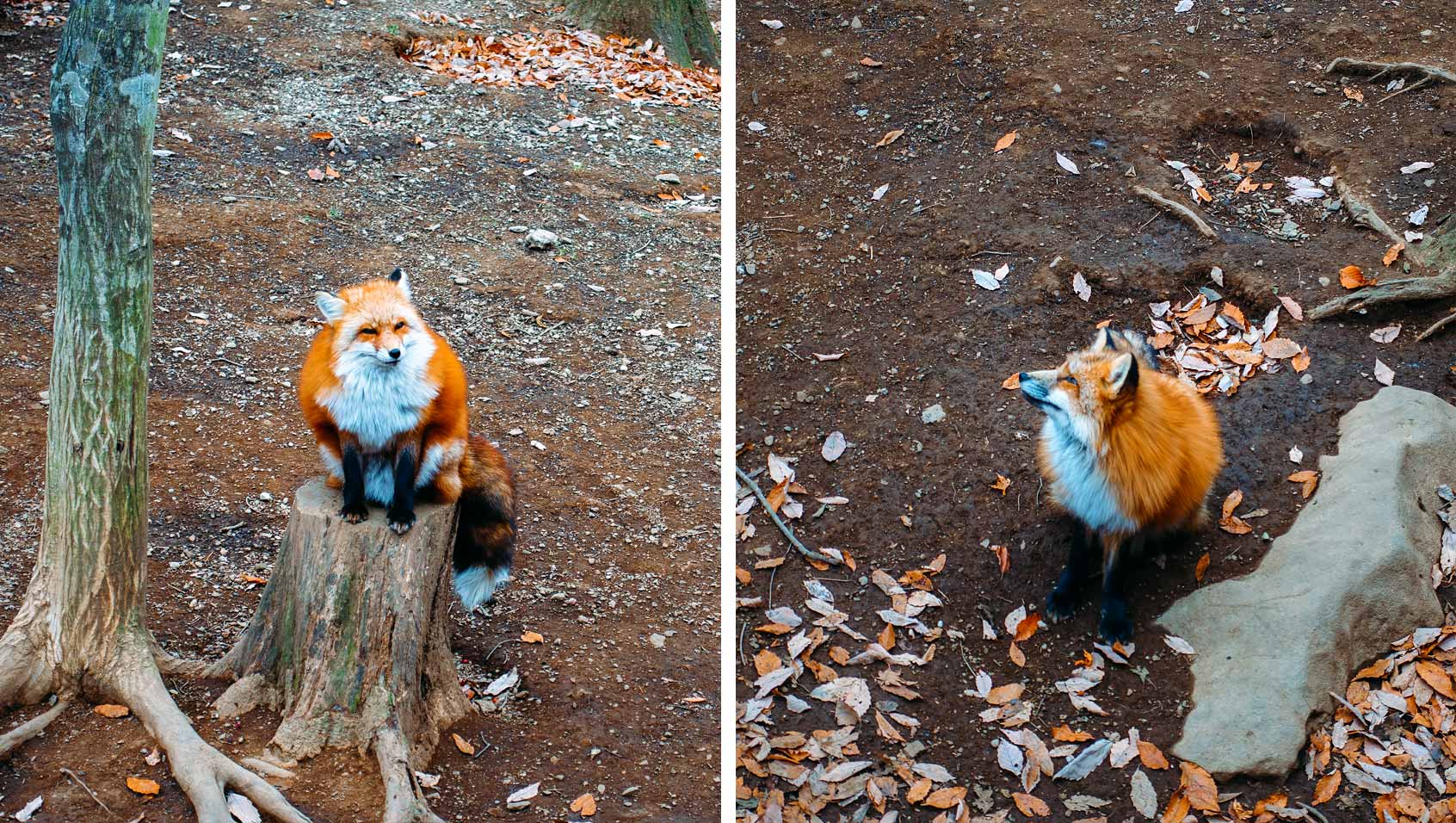

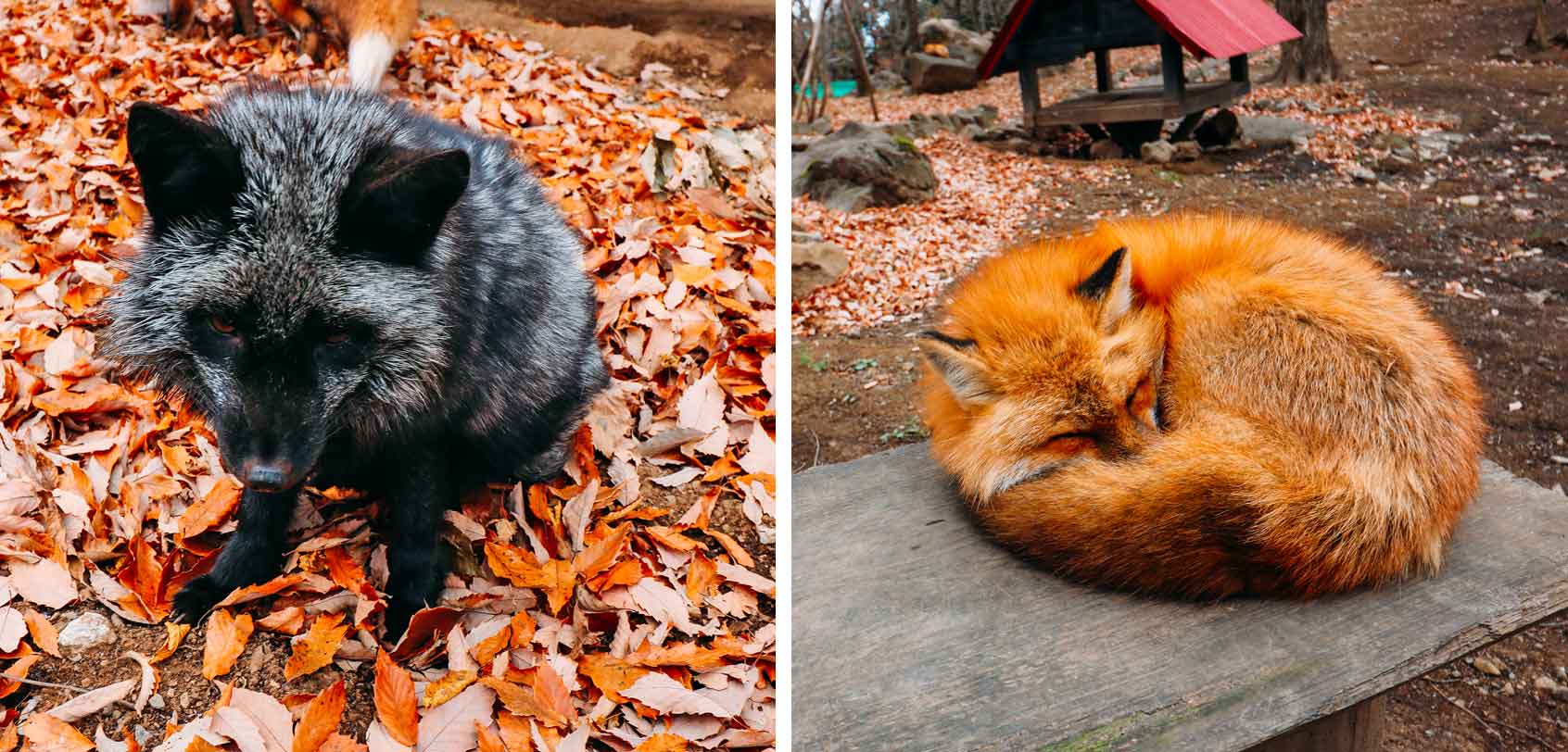

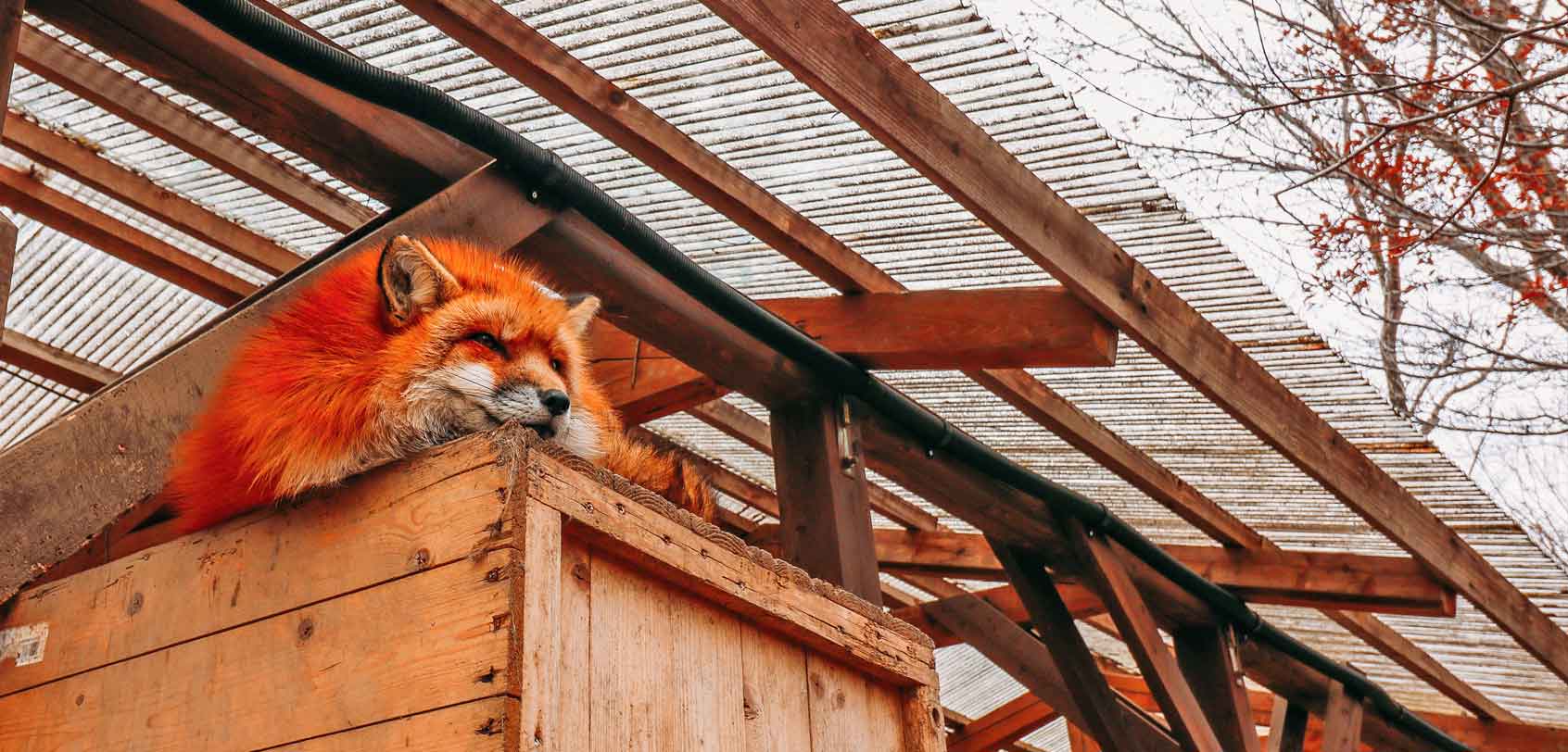
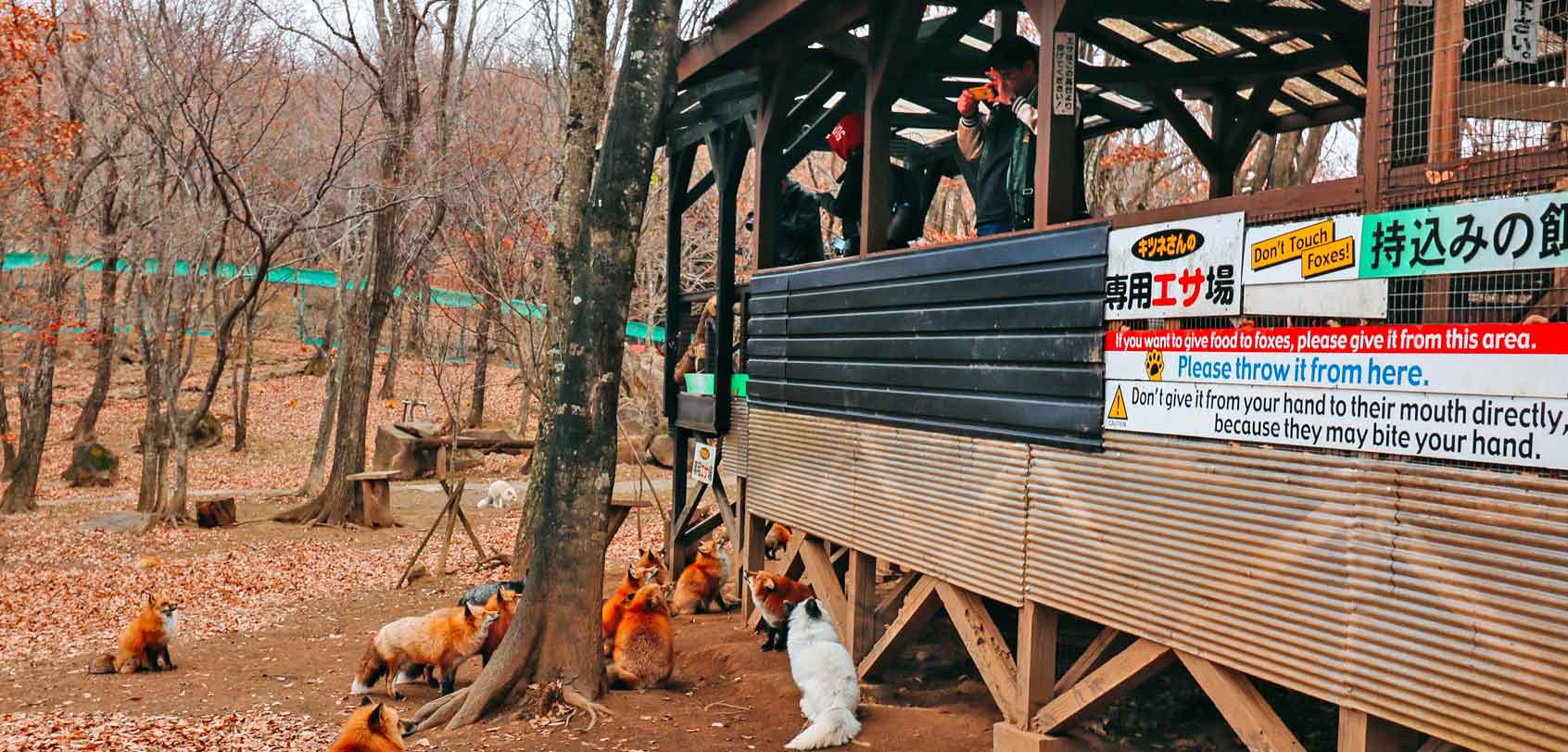
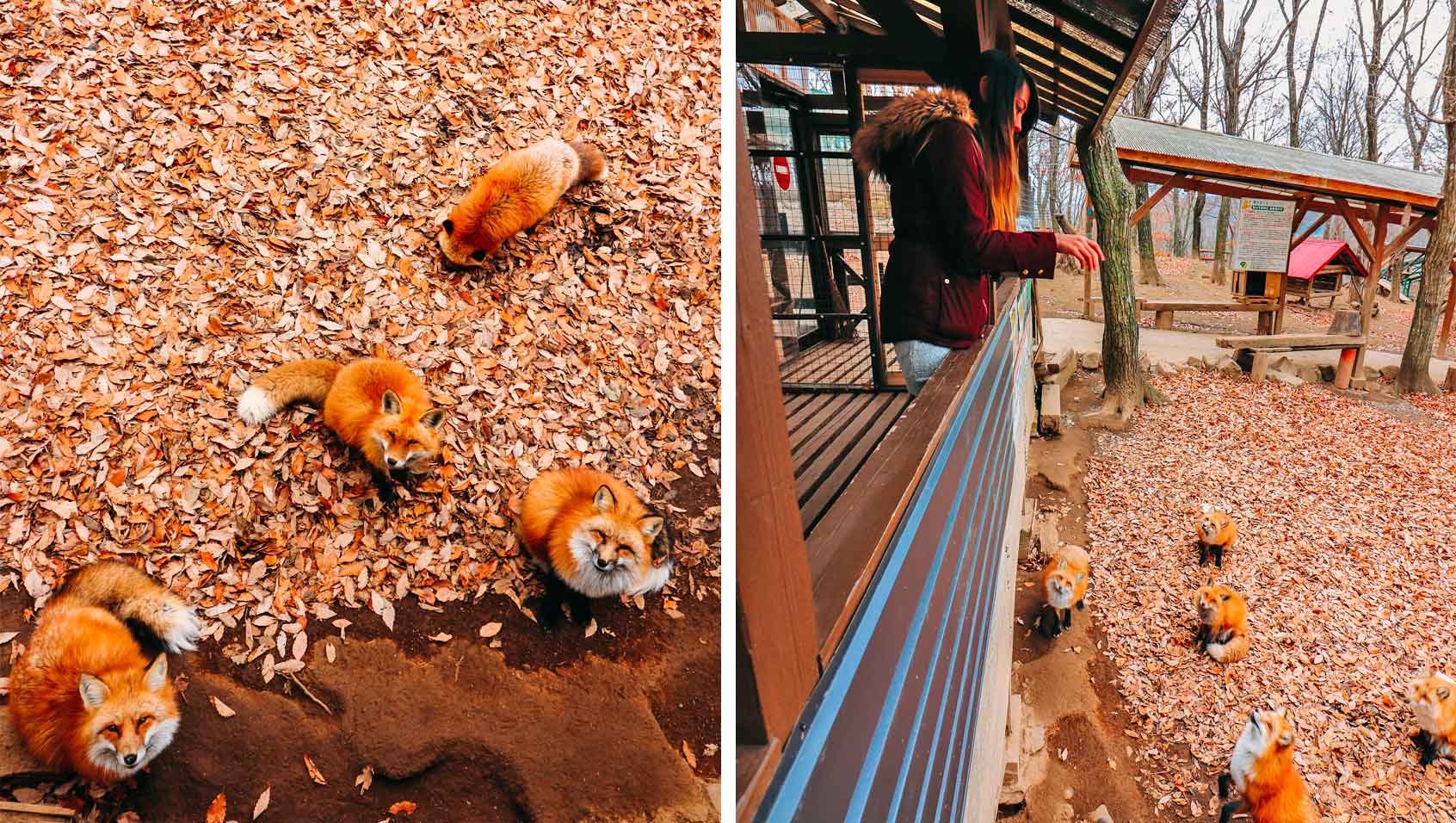
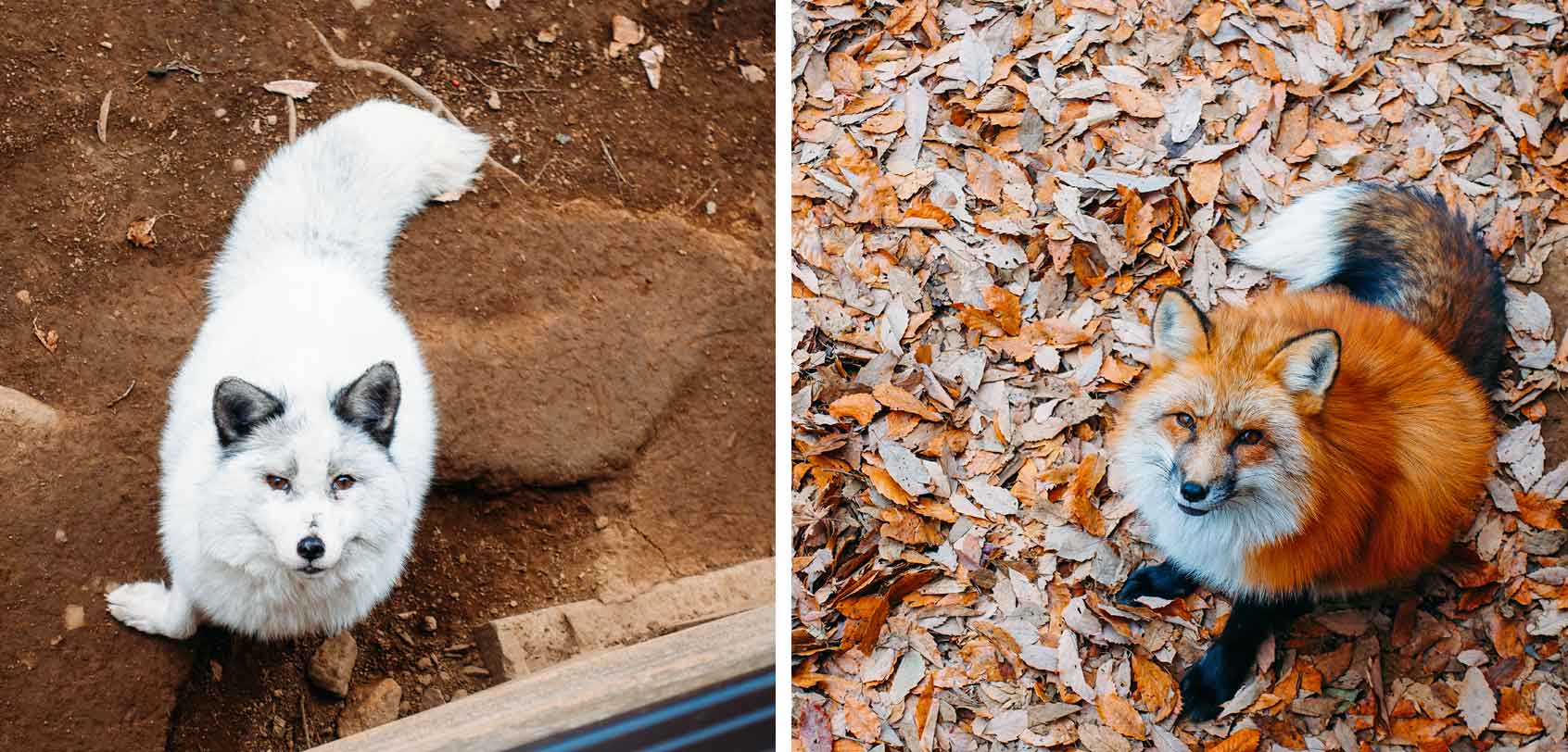
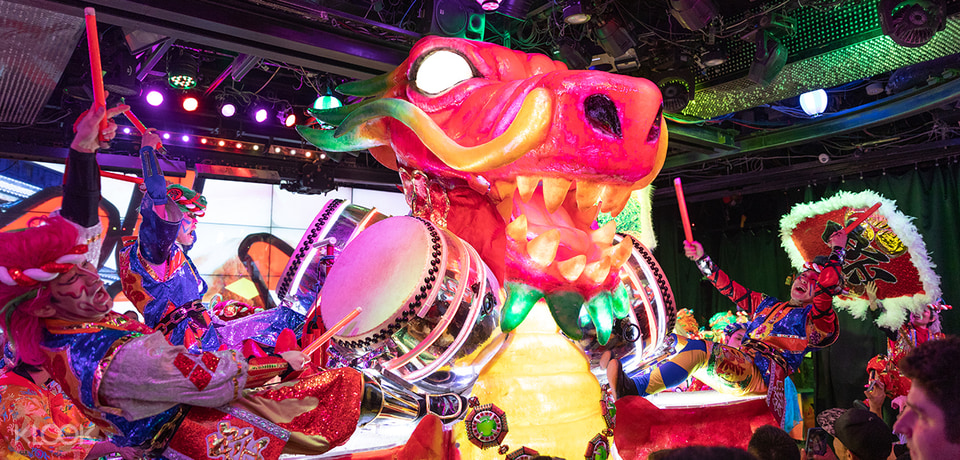
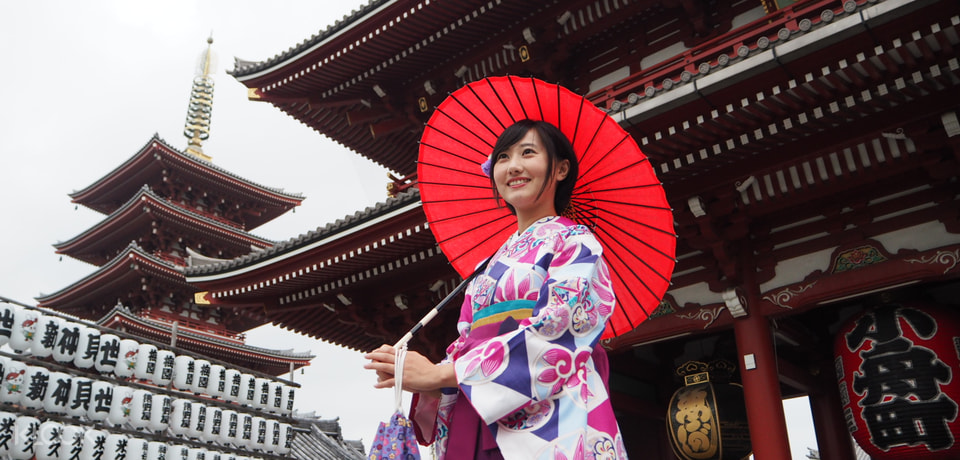



Thank you so much.. Your blogs are always so informative and nice.
Can I ask around what period were you at this Fox village? I am thinking of consolidating an Autumn trip and wants to know if I can still see any autumn leaves when i am there.
Hey! I was here in November :D Let me know how the experience goes for you!
Excellent site you’ve got here.. It’s hard to find quality writing like yours these days.
I honestly appreciate individuals like you! Take care!!
Hi! Awesome blog, I love it!
I’m planning my trip and want to include this furry friends, is there other way, besides taxi, to get to the village on sunday?
Unfortunately, I only know of the bus that runs from Tuesdays to Fridays. :(
I am pretty interested in going to see this place in person. As a vegetarian and animal lover, I feel like it must be a good place since the animals are living so long and also saved from the insidious fur trade. I am traveling to Japan in March and I can not wait, although we will just be doing Tokyo and Kyoto, so I doubt that we will be able to make it to Miyagi prefecture. I have a feeling that I am going to love Japan.
What a cute fox, I will be travelling on October, maybe on 13th, Do you any nearby attraction around fox village ? I search and found Zao Onsen, but i think it is way far from there..
Any recommendation ?
Thanks
Hey Johan, regrettably, the place near the fox village is quite remote so there’s not much of an attraction other than this park (but you can explore the small villages if you’re curious about their way of life). Indeed most other bigger attractions like Zao Onsen that are nearby are a bit too far away that’s why most people make this as a special day trip. Hope this helps answer your question.